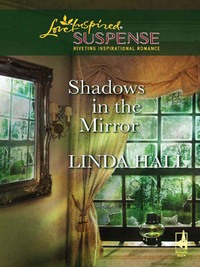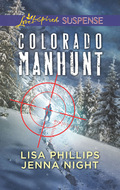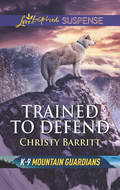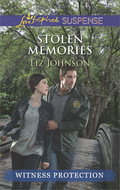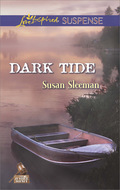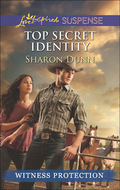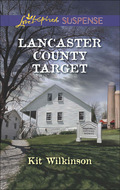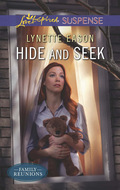Książki nie można pobrać jako pliku, ale można ją czytać w naszej aplikacji lub online na stronie.
Czytaj książkę: «Shadows In The Mirror»
Shadows in the Mirror
Linda Hall

My Domino Diva writing buddies,
without whose support I’d never have ventured
into writing romance.
You gals rock!
CONTENTS
PROLOGUE
CHAPTER ONE
CHAPTER TWO
CHAPTER THREE
CHAPTER FOUR
CHAPTER FIVE
CHAPTER SIX
CHAPTER SEVEN
CHAPTER EIGHT
CHAPTER NINE
CHAPTER TEN
CHAPTER ELEVEN
CHAPTER TWELVE
CHAPTER THIRTEEN
CHAPTER FOURTEEN
CHAPTER FIFTEEN
CHAPTER SIXTEEN
CHAPTER SEVENTEEN
EPILOGUE
PROLOGUE
The little girl with the purple ribbons in her hair held tightly to the man’s hand. He was taking her to the place of mirrors, he said. And the mirrors were the best place for playing. She would run in and out, between them and behind them and make funny faces. She’d stick out her tongue, and laugh and laugh. Then she’d sit on the floor and undo her purple ribbons and press them flat against the mirror. Sometimes Mommy leaned the mirror back and when she did that it made their faces look all funny and fat like plates or really skinny like crayons.
If she got up really, really close, her nose got big. And the way she got her nose to look even fatter was to squish it up against the mirror until it looked like a pig nose. When she breathed hard it left a dark place on the mirror that she could draw lines on with her finger.
But the man told her not to do that. It smudges the mirrors. It makes the mirrors no good. And he would take a handkerchief out of his pocket and back and forth, back and forth, he would wipe them clean. But Mommy never minded when she wrote with her fingers on the mirror. Sometimes Mommy would take her up in her arms and they’d twirl in bare feet around the mirrors and laugh at their reflections, while Daddy looked on and smiled. Then he would open his arms and they’d both go into that special and safe place.
Before the man came for her that day, the little girl had been in the living room where everyone was quietly sitting on chairs. Mommy and Daddy weren’t there.
“Where’s Mommy?” The little girl looked around her.
“Child,” someone said.
“You poor, poor thing.” A lady she didn’t know but who smelled like mashed potatoes ran her hand through the little girl’s hair.
“Such a poor, poor thing.”
The little girl sat down on the floor, her coloring books spread out all around her. She would wait for Mommy.
“Such a shame,” someone said. “She doesn’t understand, poor thing. She doesn’t know.”
“How can she know? She’s too young.”
“Such an honest to goodness tragedy.”
“An orphan at such a young age. It doesn’t bear thinking about.”
The little girl had gotten up from her coloring and followed Scrapples the cat into the kitchen, and the man was there. He bent down to her level and put his fingers to his lips. He told her quietly that he was going to take her to the place of mirrors where she could be happy again.
“Is Mommy there?”
“Yes, of course. Mommy and Daddy both, and if you come now you can be with them forever.” And he smiled at her.
She had to hold his hand tightly, very, very tightly and walk outside with him. Could she promise to do that? Could she keep a secret? She nodded solemnly.
He gave her a cookie and they walked out the back door, and no one saw them leave. It was raining.
Later, much later, they would ask her how it was that she had wandered out here and ended up asleep at the bottom of the root cellar. It was the cat, they said, that alerted them, the crying of the cat from the bottom of the root cellar. But how had she managed to open the heavy door all by herself?
They would wrap her up in a blanket and give her hot chocolate at the table and cluck their tongues.
“Poor child. So cold.”
“Such a cold, cold day.”
“Poor thing followed the cat outside.”
“And clear down to the root cellar. But how had the hatch been up?”
They shrugged and looked amongst themselves. But on this strange and awful day, someone, they reasoned, had gone down for a can of peaches and left it open distractedly. Anything was possible on a day like today.
And no one thought to ask the little girl.
ONE
23 Years Later
“Mom, Dad,” I whispered. “Things are good here. I want you to know that. I’m even sort of happy. The shop is doing well and I found a nice church to go to and I’m making a few friends. And there’s even this guy who smiles at me.”
Why did I just say that? I’m not ready for any man to smile at me. Especially not after the fiasco of my engagement. “Of course, you know my doubts because I’ve told you all of this in great detail, but it’s still nice to know that I’ve still got it, whatever ‘it’ is. And in a couple of minutes, I’m heading downstairs for my class. I can’t believe eleven people signed up for my mirrors class. I think you’d be proud of me.”
I sighed and placed the framed photo of my parents back down on my end table. I let my fingers glide along the top and rest there for a moment. The thing was, I had no idea whether they would be proud of me or not. I don’t know my parents. They were killed in a car accident when I was three and a half. All I have is this one picture. And yes, I talk to it. It’s one of my quirkier habits, but it’s one that gives me a strange sort of comfort.
“Hey, Marylee, hi.”
I gasped, turned. Johanna, my best friend, or as best a friend can be after only half a year of knowing someone, was standing in my bedroom doorway. I stood up and straightened the photo on my nightstand.
She said, “Your door was unlocked.” She motioned toward my kitchen and to the door that led out of my apartment and down the back stairs. “So I came in. I knocked on the doorjamb. Guess you didn’t hear me.”
She saw the look on my face. “Sorry. I should’ve knocked louder. I didn’t mean to startle you. You were on the phone?”
“No.” I offered no explanation. Not a lot of people know that I regularly talk to my dead parents.
She was still in the doorway, nervously urging one side of her hair up into a small jeweled barrette while she talked. “Oh, I can’t get this—sorry for barging in—does this look all right?”
“You look fine.” I moved away from the picture. “Your hair is beautiful.” And it was. My friend always looks fine; petite and pretty.
“It’s a hopeless frizz mop in this weather,” she said. “Call me Medusa lady. Snakes for hair.” My friend Johanna teaches English lit at the community college so she regularly peppers her conversations with literary references.
“No, your hair has body,” I said, fiddling with her barrette. “Not like my straight mop. It rains and mine flattens into my head. And it’s such a boring brown.”
“You could get highlights. Your smiling coffee guy might like it.” She was grinning and I was grinning and I was happy she was my friend.
“I don’t have a smiling coffee guy,” I said.
“Sure you do.” She pointed at me. “The guy you keep telling me about, the one who just happens to be in the coffee shop every morning when you just happen to get your coffee, the guy who just happens to smile when he sees you, that guy.” She reached into her pocket for her lipstick. Johanna never carries a purse; instead all of her jackets and pants have copious pockets in which she keeps loose change and lipsticks and combs and barrettes.
“He winked at me today,” I told her.
“He winked at you!” She stopped and turned, holding the lipstick tube. “That’s a step up from smiling, you know.”
“There’s no step up. There’s no steps anywhere in a relationship that’s not a relationship. I don’t even know his name.” I pulled my own hair back into a pink scrunchie I’d had on my wrist. “And besides, I’m not interested.”
I wish I were glamorous. Or at least sort of pretty. But every time I look at myself I think of my aunt Rose who raised me; capable, smart, talented, plain. When I was fourteen a neighbor of ours called me handsome. That’s me, handsome. No wonder my former fiancé dropped me like a sack of composted turnips. “You need to learn the way things work, Marylee,” Johanna said, capping her lipstick tube. “First there’s the look, and then there’s the half smile. You know, the mouth only up on one side.” She did a pretty good facsimile. “Then there’s the full smile. And then there’s the wink. And need I mention that your coffee guy is way beyond my Evan? I went into his photo shop today to get some pictures developed. All he said was, ‘Hello, Johanna. Nice weather, isn’t it?’ That was it. That was all. Nothing. After all we shared, he’s talking about the weather.”
“Johanna.” I turned to her. “You’re such a great person, you shouldn’t be wasting your time on some idiot who’s treated you horribly.”
“He didn’t treat me that horribly. He just never called me again.”
“Same difference,” I said.
I had heard often about the wonderful and famous Evan and the two glorious dates they’d gone on, and then how Evan hadn’t called. Still, Johanna had multiple excuses for him. He was busy with work. He’d just come off a broken engagement. He’d been so hurt in life he had trouble committing.
She opened her mouth to say something and then clamped it shut and shrugged. Finally she said, “I just wish that someone, I don’t even care who, would finally break through that thick hedge of his soul.”
I grinned at her. “Oh, you do care,” I said. “You want that person to be you. Admit it.”
She put up both hands in mock surrender and shook her head. “No, I’m an adult. Seriously. I mean, of course I would like it to be me, but I’m ready for whatever.” Then she added, “I pray for him every day, you know.”
“Personally, I think you’re wasting your time.”
She shrugged, looked away from me. Were we good enough friends for me to say that to her? I hoped I hadn’t hurt her, but it maddened me that my new friend was enamored of a guy who took her out twice and then just stopped calling with no explanation.
“Well,” I said and pulled on my blue sweater, “we should get downstairs. Class awaits.”
But she was standing there, quiet. “Marylee, may I ask who were you talking to when I came in? Did I interrupt something?”
Maybe Johanna could be trusted with some of the secrets of my life. “I was talking to my parents.”
“Your parents!” She looked at me, wide-eyed. “On the phone? But, I thought…”
“I know it’s strange, but I have a picture of them and I’ve been talking to that picture for, like, my whole life. It sort of, I don’t know, gives me comfort. Sounds weird.”
“It doesn’t sound weird at all. Can I see them? Do we have time?”
I went and got the photo from the nightstand and showed it to her. She studied it. “She’s so pretty. Your mother.”
I nodded. In the twenty years since my aunt Rose had given me this framed photo on my birthday, I had memorized every nuance, every shadow, every square inch. My father is handsome and tall and stands with his arm protectively around my mother. She looks up at him, her sweep of long blond hair falling gently down her shoulders to her waist. She wears a green cotton dress and is barefoot. They’re both barefoot. Her feet are dainty and small, so unlike my own. She’s young and pretty, younger than I am now. Behind them is the blue of Lake Champlain.
All of my growing up years I wanted hair like my mother’s, long and softly curling and blond. Instead, mine is more like my aunt Rose’s, plain and straight and brown. Plus, my mother is so slender, and I’m always battling five pounds, sometimes winning, sometimes losing.
Johanna looked at the picture and said, “I thought your mother was the picture you have in your living room, that one on the wall. The resemblance is quite strong. I always thought you look so much like her.”
“No,” I said. “That’s my aunt Rose. She raised me after my parents were killed.”
Johanna set the picture down on the kitchen table, where we now stood, and I made sure the French doors to the balcony off my kitchen were locked. I closed the curtains on the windows that overlooked the tiny porch. Actually, it was this little postage stamp of a wrought-iron deck that sold me on the place. It’s only big enough to hold not much more than my wicker rocking chair, and even though it overlooks a back alley, I like sitting out here on warm nights with a book.
Doors, windows securely shut and locked, I grabbed my keys and said, “We better get going. Downstairs we have eleven ladies wanting to learn how to make mirror mosaics.”
I armed the security system to my small apartment and we headed down the back steps to the craft shop I owned. I owned! I still couldn’t get my mind around the fact that I’d owned Crafts and More for seven months now. A month ago I was even flush enough to hire a woman to work with me three afternoons a week. Barbara was a wonderful crafter who was using the extra money to help her youngest son who was in his first year in computer management at the Community College of Vermont, the same place Johanna taught English lit. I knew her from church where she led a weekday-morning crafts-and-Bible study. She bought lots from my shop. When I’d asked if she wanted to work here part-time, she’d said, “Sure! Why not? I’m here the equivalent of that time anyway.”
I’d also begun offering craft classes in the community. My favorite was a scrapbooking class for seniors over at the Champlain Seniors’ Center. In addition to tonight’s mirror arts class, I had a quilting class. Plus, I had plenty more classes in the planning stages.
Johanna was wearing two different colored socks I noticed, as we headed back down the stairs. I smiled to myself. Johanna was good for me. My funky friend brought a lightness to my life that had been absent for too long.
Three women were waiting under the awning at the locked front door. “Hello, ladies,” I said cheerfully, letting them in. “There’s a bit of time, so if you want, you can pop over next door and grab a coffee. They’re still open for a few more minutes. We won’t start without you.” I poked my head outside and looked through the large glass windows into the brightly lit coffee shop. But of course the man who got his coffee the same time I did each morning wouldn’t be there. What was I thinking? And why was I even looking for him?
I was about to turn back when I saw something. Or felt something. It was as if a dark hand had waved across the coffee shop windows. It disappeared so quickly that I couldn’t get a handle on it, couldn’t figure it out. A person? A cloud? Fog? What?
I held my sweater closed at my throat, but the sense of something, or someone, there made me quiver. I thought of my aunt’s constant premonitions, her asking me to make a promise before she died. “Don’t go back to Vermont. Whatever you do, don’t ever go back to Vermont, Marylee. Promise me this!”
And I had looked at her skeletal face, wasted by the cancer that would take her in a matter of weeks, and made no such promise. Instead, I’d wept as I’d smoothed a wet cloth on the forehead of my mother’s sister, the woman who’d raised me.
A chill so profound started at the tip of my toes and ended in a place near my forehead. I closed my eyes briefly.
“Are you okay?” A woman with gray curls approached me.
“Just a chill. It’s cold out there,” I said.
“Do you think so?” said someone else overhearing the tail end of our conversation.
“Warm for this time of year,” said another from across the room.
“Supposed to rain,” said someone else.
And while the ladies talked on about the weather, I drew back into my cheerful shop and made my way to the craft table in the rear. Earlier I had set out pieces of mirror, both glass and plastic. At each place I’d laid a nine-by-twelve mirror. I’d instructed the ladies to bring photos or pictures from magazines that they wanted to use in their mosaics. For those who hadn’t brought pictures, I had a stack of old tourist magazines featuring scenes from Vermont and other parts of New England they could cut pages from. I had told them this was going to be a fun class and that anybody could do it. Even Johanna, who claimed she couldn’t draw a straight line with a ruler, was going to participate.
Two more ladies entered; another two went for coffee and a few more sat down at the table and fingered through pieces of mirror.
“I’ve done decoupage, but never with mirrors,” one said.
“It’s something I learned from my aunt,” I said with forced cheerfulness. I was still reeling from what I’d seen out there. Or hadn’t seen. “But watch your fingers. Some of those pieces are sharp. We don’t need any cut fingers tonight.”
Ten minutes later all eleven women had arrived. Most of them seemed to know each other already. I had us fill out colored name tags with marking pens, but this was obviously more for my benefit than theirs. I stood at the head of a long table and began to explain mirror mosaic art as taught to me by Aunt Rose.
“Is it like tole painting?” asked a woman whose name tag read Gladys.
“Not really,” I explained. “It’s a bit like decoupage. But not exactly. It a bit dif—” I stopped. I began choking, coughing. I put my hand to my throat. My eyes went wide. I couldn’t breathe. One of the ladies reached into her purse and handed me a paper-wrapped cough candy. “Thank you,” I managed to say. I tried unwrapping it, but my fingers refused to find the edges of the wrapper.
This wasn’t an ordinary tickle in my throat. A woman named Beryl was smoothing out the picture she’d brought with her. It was the same exact picture I had kept in the frame on my nightstand for all of my growing-up years. It was the picture that had listened to all my whispered prayers and thoughts. It was the picture I had said good-night to almost every night of my life, and the one I had said good morning to when I woke up. I was still coughing. I needed to sit. I needed to flee. I needed to throw up. I closed my eyes. I swallowed.
Johanna drew back, put her hand to her mouth.
I pointed to the picture, astounding even myself by my ability to ask Beryl in a very calm voice, “Where did you get that picture? Do you know those people? Are they related to you?” Could this little owl-like woman with the oversized glasses be a relative of mine? Some distant aunt? Did she know my aunt Rose?
She shook her head. “This is just a magazine picture, dear. I cut it out years ago. I’ve always thought the picture so lovely and romantic.”
“What magazine?” I managed to ask.
“I have no idea. It was one of those magazines that had romance stories. Not many of them do anymore, you know. There was a time when every women’s magazine had a romance story. I miss that.”
Several women nodded in agreement. Several more looked up at me, concern across their faces.
“But what magazine? When?”
“Oh, my dear, that would be years ago now.”
I kept looking at her and asked, “Did you…Have you lived here a long time?”
She shook her head and said, “We moved here when Bert retired. That would be ten years.”
“Then do you know these people?” I pointed at the picture.
Her eyebrows screwed together into one long brow across her face. I was conscious of time standing still, of the rest of the class regarding me, but I had to know.
“No, dear,” she said. “I told you. This is just a picture from a magazine.”
“But, um…” I couldn’t take my eyes from the picture, the two of them, my parents in a stranger’s hands.
I had lived with the story of my parents for as long as I could remember. They’d died in a car accident, the details of which were too painful for my aunt to ever fully talk to me about. Even when she was dying, she’d refused to tell me about the particulars of the accident. Was it a head-on collision? Was it a drunk driver? Had the car skidded out of control on icy or wet roads? When I would ask these questions, my aunt would simply turn her head away from me, tears at the edges of her eyes. I finally figured out that losing her sister was so painful to her that she couldn’t, wouldn’t talk about it. But I never stopped asking.
I looked around me. “Do any of you remember Allen and Sandra Simson? They would have lived here a long time ago, around thirty years now.”
The ladies looked at each other and shook their heads.
I took a deep breath. “How about Rose Carlson? Do any of you know Rose Carlson? Or her sister, Sandra Carlson? That would have been her name before she was married.”
All around were mystified head shakes. By now I felt so nauseated I could barely stand. I felt hot and cold all at once. Without further explanation, I fled to my little bathroom in the back, where I leaned both hands on the edge of the sink and looked at myself in the mirror. I was freezing. I was sweating. Peas of moisture beaded on my forehead, yet my throat was dry. I swallowed several times and just managed not to throw up. Breathe. Breathe, I told myself. Something else was bothering me, something I’d shoved to the back of my mind for all these years, something I didn’t confront, couldn’t. But something that was even now staring me in the face. I looked up at the reflection of my own face in the mirror above the sink. That beautiful, barefoot woman with the long hair was not my mother. The two in the picture were not my parents.
I could hear Johanna in the other room. “Well, ladies, let me go see how Marylee is. Keep leafing through the magazines and we’ll be right back.”
A moment later her hand was on my neck.
“Did you see the picture?” I asked.
“I did, Marylee. I did. But there’s going to be a simple explanation. After the class, I’ll come up to your apartment and we’ll figure it all out.” Her voice was soothing, and I was so glad she was my friend and that she was with me tonight.
“But why?” I asked. “Where did Beryl’s picture come from? Where did my picture come from?”
After my aunt Rose had died and my engagement had fallen apart, I’d come here to Burlington, Vermont. It was the only thing I could really do. Even despite her Cassandra-like warnings, I was born here and had lived here for the three years prior to my aunt driving us out west. The secrets lay somewhere here in Burlington. I just had to find them. Of course, I had researched the accident. Through the years, I’d pawed through my aunt’s things looking for pictures, looking for news articles, looking for death certificates. I’d found nothing. I’d searched my parents’ names on the Internet, plus any reference to a car accident in Vermont many times, and had come up empty.
Someday I would stand at the graves of my parents. Someday I would find the rest of my family. For I knew there had to be more than just me and Aunt Rose.
Yet in the seven months I’d been here, I hadn’t been able to find anyone who knew my parents or my aunt. I had scoured the cemeteries. No luck. None of the seniors in my afternoon scrapbooking class remembered the names Allen and Sandra Simson. I’d also worked my way through the newspaper archives at the public library so many times that the reference librarian was getting sick of seeing me come in. Yet I had found zilch. Google searches continued to yield nothing.
And now this! My first real clue in seven months and you’d think I’d be cheering and jumping up and down, yet here I was, my hand to my mouth to keep from throwing up.
Maybe there was a part of me that was afraid of what I would find. Or what I wouldn’t find. Maybe, after all, there was nothing to find.
Darmowy fragment się skończył.
